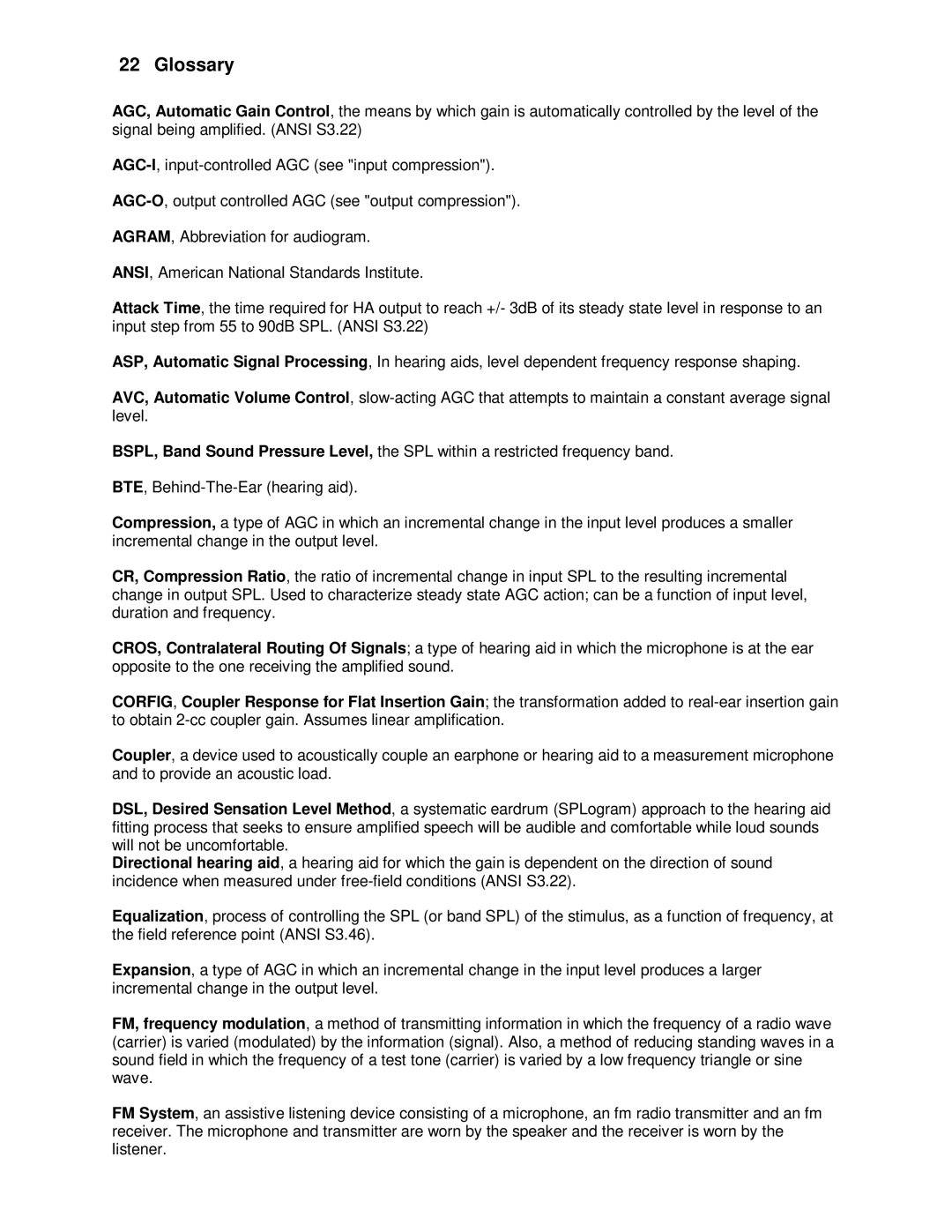22 Glossary
AGC, Automatic Gain Control, the means by which gain is automatically controlled by the level of the signal being amplified. (ANSI S3.22)
AGRAM, Abbreviation for audiogram.
ANSI, American National Standards Institute.
Attack Time, the time required for HA output to reach +/- 3dB of its steady state level in response to an input step from 55 to 90dB SPL. (ANSI S3.22)
ASP, Automatic Signal Processing, In hearing aids, level dependent frequency response shaping.
AVC, Automatic Volume Control,
BSPL, Band Sound Pressure Level, the SPL within a restricted frequency band. BTE,
Compression, a type of AGC in which an incremental change in the input level produces a smaller incremental change in the output level.
CR, Compression Ratio, the ratio of incremental change in input SPL to the resulting incremental change in output SPL. Used to characterize steady state AGC action; can be a function of input level, duration and frequency.
CROS, Contralateral Routing Of Signals; a type of hearing aid in which the microphone is at the ear opposite to the one receiving the amplified sound.
CORFIG, Coupler Response for Flat Insertion Gain; the transformation added to
Coupler, a device used to acoustically couple an earphone or hearing aid to a measurement microphone and to provide an acoustic load.
DSL, Desired Sensation Level Method, a systematic eardrum (SPLogram) approach to the hearing aid fitting process that seeks to ensure amplified speech will be audible and comfortable while loud sounds will not be uncomfortable.
Directional hearing aid, a hearing aid for which the gain is dependent on the direction of sound incidence when measured under
Equalization, process of controlling the SPL (or band SPL) of the stimulus, as a function of frequency, at the field reference point (ANSI S3.46).
Expansion, a type of AGC in which an incremental change in the input level produces a larger incremental change in the output level.
FM, frequency modulation, a method of transmitting information in which the frequency of a radio wave (carrier) is varied (modulated) by the information (signal). Also, a method of reducing standing waves in a sound field in which the frequency of a test tone (carrier) is varied by a low frequency triangle or sine wave.
FM System, an assistive listening device consisting of a microphone, an fm radio transmitter and an fm receiver. The microphone and transmitter are worn by the speaker and the receiver is worn by the listener.
